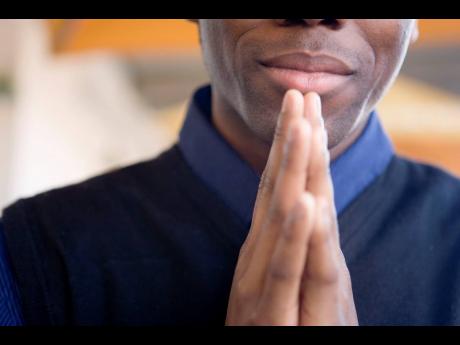Understanding what it means to trust in God
No more crying, no more complaining
I believe Your word is true
Lord You promised never to leave me lonely
So this is what I’m going to do
I will trust in You Lord
- Anthony Brown and Group Therapy
Whether in marriage or in faith, trust is something that proves difficult for many to exercise. In a relationship, it is the bone of contention as doubts cause persons not to take their partner’s words in a situation.
Similarly, in Christendom, believers struggle in taking the Word of God that whatever situation they are facing is under God’s control. They worry and fret, praying, yet at the same time, giving themselves sleepless nights trying to figure out a solution.
Family & Religion reached out to Reverend Carlene Bryan of Dominion in Christ International Ministries Church, for insight on the issue. Defining ‘true trust’, she said, it goes deeper than standing in faith for specific things.
“True trust is one that cannot be shaken, even though the circumstances we face seem to be going in the opposite direction of what the Word of God says. True trust remains steadfast even when the things we have prayed for, called in, and exercised faith for remain unchanged with no sign of manifestation,” Bryan points out.
For her, trusting God will require not knowing how God is going to accomplish what needs to be done, and not knowing when He will do it.
Bryan said that trust is not a process that can be learnt through osmosis – but simply having to let go and learn to exercise that emotion.
“Numbers 23:19 states: God is not a man, so He does not lie. He is not human, so He does not change His mind. Has He ever spoken and failed to act? Has He ever promised, and not carried it through?” she quoted, stressing the confidence one can have in trusting God.
Bryan said that some Christians will never admit it, but if truth be told, they are actually treating God like He is a liar.
“We attend church and we shout and agree with what is preached about the goodness of our God. Yet, when Satan throws us a curveball with sickness or an unexpected bill shows up, we no longer trust the God who says, ‘I am the Lord that healeth thee’ or ‘God shall supply all our needs…’ In effect we label Him a liar,” she opines.
One mistake Christians make, according to Bryan, is to mistakenly think trust means that they can keep doing what they think is right in their own eyes, and make their own decisions without ever consulting God.
The repercussion from that kind of behaviour, she said, is when they hit a bump in the road, they expect God to show up like a knight in shining armour to clean up whatever messes they made along the way.
“That is not the way of trust. On the contrary, when we trust someone, we consult with Him, value His word, accept His directions, and follow His instructions. We aren’t truly trusting God unless we do these things,” she stressed, adding that God is looking for people who do things His way. Doing that, she said, will require a commitment on Christians’ part to study His word.
In concluding, Bryan said that a lot of persons refer to knowing about God, through their knowledge of the Bible, but in reality, they do not know God.
“When we know Him intimately, then our trust deepens and our confidence increases even in times of opposition. The Greek word for ‘know’ in this passage means to have trust in the truth; to have a relationship with the truth. Isn’t that a revelation?”
familyandreligion@gleanerjm.com

